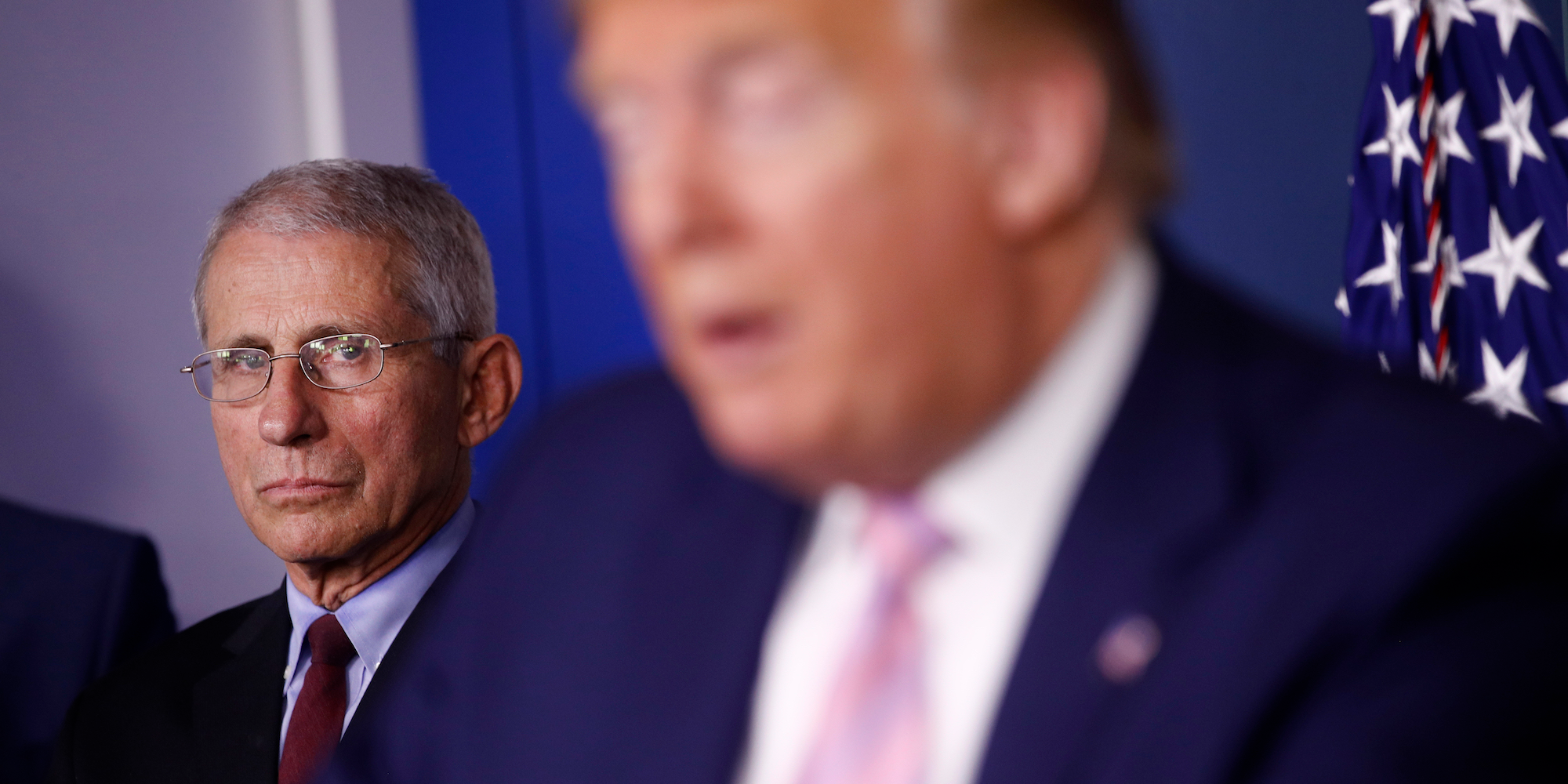- The Los Angeles Times reported Wednesday that President Donald Trump personally “authorized” and “encouraged” an op-ed by White House trade adviser Peter Navarro attacking Dr. Anthony Fauci.
- Fauci is the nation’s top infectious-disease expert and a member of the White House coronavirus task force.
- The LA Times’ reporting contradicts the White House’s claim from earlier Wednesday that it did not sign off on the Navarro op-ed and he broke protocol by publishing it.
- Trump and his allies have leveled a string of public attacks against Fauci in recent days, accusing him of mishandling the coronavirus outbreak and circulating a list of talking points, characterized as opposition research, against him.
- The attacks also come as Trump is reportedly rattled by Fauci’s soaring reputation with the American public, his approval rating on handling the pandemic, and his frequent television appearances.
- Visit Business Insider’s homepage for more stories.
The White House said Wednesday it did not sign off on a controversial op-ed that trade adviser Peter Navarro wrote attacking Dr. Anthony Fauci, the nation’s top infectious-disease expert and a member of the White House coronavirus task force, characterizing it as “the opinion of Peter alone.”
But according to the Los Angeles Times, Trump personally green-lighted the op-ed, which was published in USA Today on Wednesday. “Not only was he authorized by Trump, he was encouraged,” an administration official told the LA Times, referring to Navarro.
Trump’s top trade adviser accused Fauci in the op-ed of having “been wrong about everything I have interacted with him on.”
“When you ask me whether I listen to Dr. Fauci’s advice, my answer is: only with skepticism and caution,” Navarro wrote.
Navarro, an economist who studied trade issues as an academic, has clashed with Fauci over issues including the use of hydroxychloroquine as a coronavirus treatment. Navarro pushed Trump to back the antimalarial drug as a coronavirus treatment and blew up at Fauci for raising questions at an April task-force meeting, Axios reported.
The drug has since proved ineffective at treating the coronavirus, but Trump's fixation led the US government to spend at least $88 million on the drug, more than any other potential treatment, an Insider investigation found.
Navarro's op-ed comes as multiple White House aides step up their public attacks on Fauci. On Monday, Trump's deputy chief of staff for communications, Dan Scavino, shared a cartoon on Facebook accusing Fauci of trying to impose an "indefinite lockdown" in the US, keeping schools closed, and tanking the economy.
And over the weekend, White House insiders circulated a list of talking points criticizing Fauci for his handling of the US's coronavirus outbreak, which is the worst in the world. The talking points attacked him for flip-flopping his stance on lockdowns, not taking control of the crisis early on, and giving conflicting advice to the public on asymptomatic transmission.
Public-health officials sharply criticized Trump's aides for sending the list around, especially given that Trump failed to take early action against the virus, ignored over a dozen intelligence assessments warning of an impending pandemic, and spread misinformation about its severity after it gained a foothold in the US.
Fauci hit back at both Navarro and the Trump aides who circulated the list during an interview with The Atlantic on Wednesday, saying the list "doesn't do anything but reflect poorly" on the people who were behind it.
He also singled out Navarro, telling The Atlantic, "I can't explain Peter Navarro. He's in a world by himself. So I don't even want to go there."
Fauci was one of the main voices on Trump's coronavirus task force when it was first established, but he's been increasingly sidelined in recent months by the White House.
According to The Washington Post, Trump has been especially rattled by Fauci's soaring reputation with the American public compared with his own, as well as Fauci's frequent television appearances.
White House press secretary Kayleigh McEnany denied this week that the talking points were opposition research and said Trump and Fauci had "a good working relationship."
